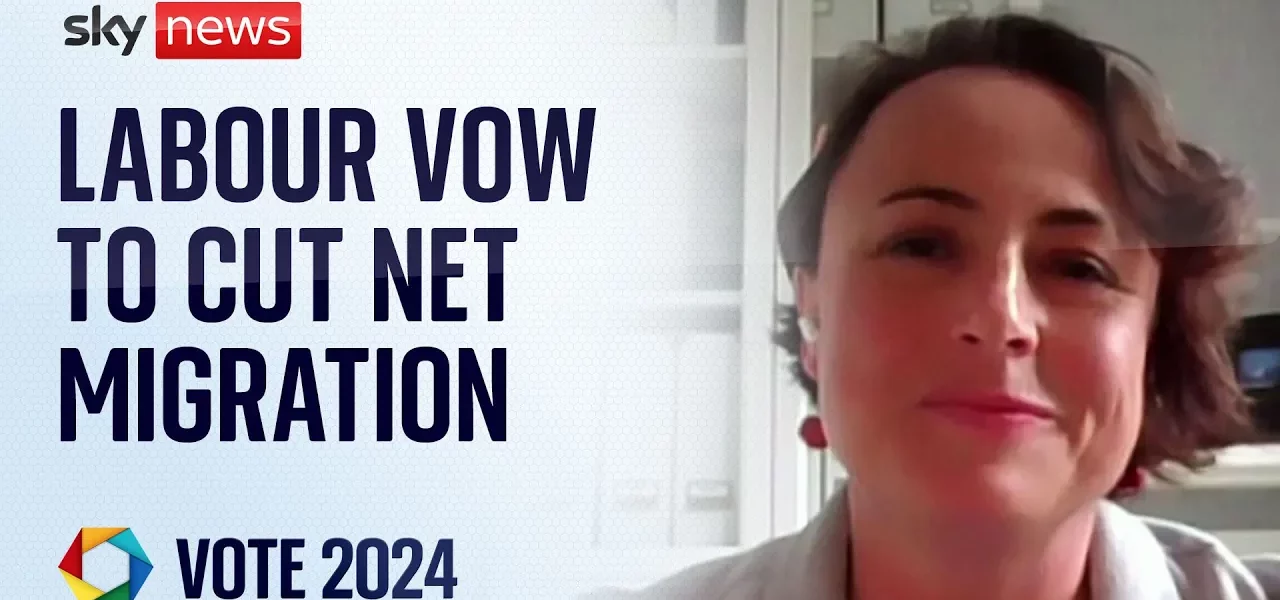Shadow Schools Minister Katherine McKinnell Discusses Immigration and Skills Shortages

In a recent interview, Shadow Schools Minister Katherine McKinnell emphasized the pressing issues surrounding immigration and skills shortages in the UK. She highlighted the critical need for a balanced approach to managing migration while addressing the skills gap in various sectors of the economy.
Introduction
Katherine McKinnell, the Shadow Schools Minister, has taken center stage in the ongoing discussion about immigration and its implications for the UK economy. With rising concerns over skills shortages and the heavy reliance on migrant labor in key sectors such as the NHS, McKinnell argues for a more strategic approach to migration. This article delves deeply into her insights on immigration, skills shortages, and the potential impact on the education system in the UK.
The Need for a Balanced Migration Strategy
McKinnell emphasizes that the current immigration policies are not effectively addressing the skill shortages faced by various industries in the UK. She notes that while there are high migration levels, the absence of clear targets has created a chaotic environment. Key points include:
- High levels of migration without strategic targets can lead to unsustainable workforce practices.
- There is a critical need to connect migration to skills development within the UK.
- Many sectors, including healthcare and technology, are overly dependent on migrant labor.
McKinnell has pointed out that these issues have been exacerbated over the past 14 years under the Conservative government, which has failed to deliver on its promises regarding immigration management.
Understanding the Migration Forecast
The Office for Budget Responsibility (OBR) projects that net migration will decrease to approximately 315,000 by 2027-2028. McKinnell acknowledges this forecast but emphasizes that numbers alone do not capture the broader challenges involved. Key considerations include:
- The quality of jobs migrants are filling and whether these roles could be filled by domestic workers.
- The importance of training local talent to address skill shortages in the workforce.
- The necessity of a comprehensive workforce plan to avoid reliance on migration for labor needs.
She advocates for a proactive approach, where migration serves as a response to skill shortages rather than a default solution.
Investment in Skills Development
McKinnell underscores the importance of investing in local talent. She argues that the government must prioritize training and upskilling initiatives to ensure that young people and the workforce can meet the demands of various sectors. Important aspects include:
- Creating pathways for young individuals to enter skilled professions.
- Encouraging lifelong learning and reskilling opportunities for adults at various career stages.
- Establishing partnerships between educational institutions and industries to align training with market needs.
By focusing on local talent development, the UK can reduce its dependence on migrant labor, ultimately fostering a more resilient economy.
Education Funding and Private Schools Policy
Another significant aspect of McKinnell’s agenda is addressing the disparities in education funding, particularly concerning private schools. The Labour Party aims to levy VAT and business rates on private schools to redirect funds into state education. Key points of this policy include:
- Using the projected net revenue of approximately £1.3 billion to enhance teaching quality and mental health support in state schools.
- Addressing the barriers to opportunity that currently exist within the educational landscape.
- Ensuring that private schools contribute fairly to the broader educational reforms needed across the UK.
McKinnell asserts that the focus should be on improving state education, where the majority of children are enrolled, rather than solely on the private sector.
Conclusion
Katherine McKinnell’s insights shed light on the intertwined issues of immigration and skills development in the UK. By advocating for a balanced migration strategy that emphasizes training and education funding, she outlines a vision for a more sustainable and equitable economic future. As the Labour Party prepares for the upcoming general election, it is clear that addressing these challenges will be pivotal. For more information on related topics, consider exploring our articles on immigration policy and education funding reforms.
“`




